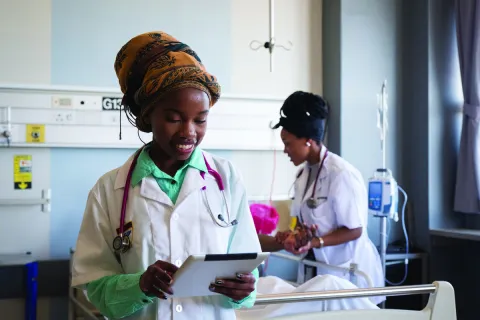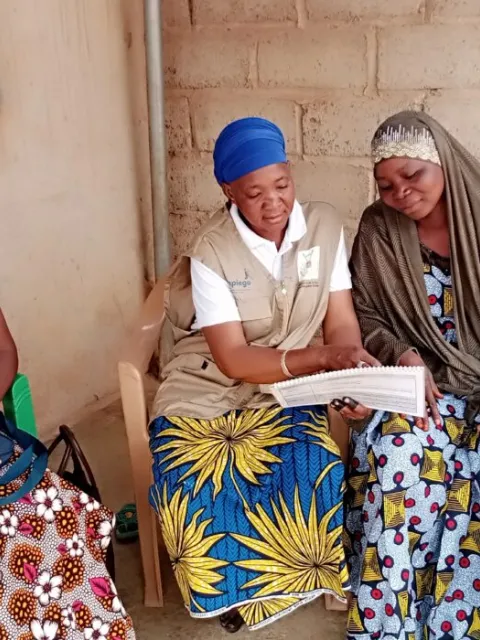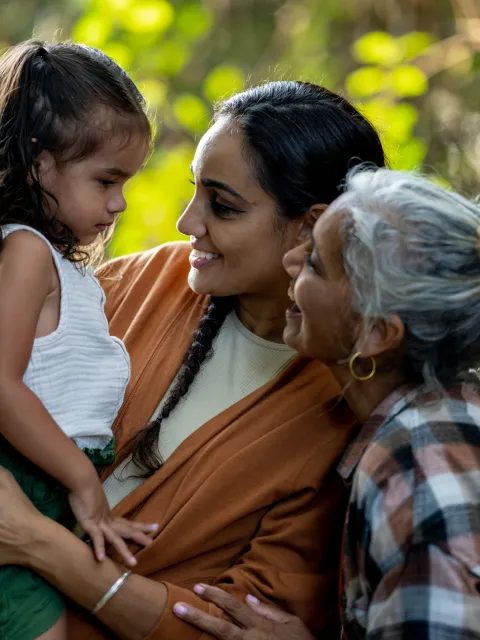Universal Health Coverage: How law can help #ProtectEveryone

[This blog was originally published on the website of the McCabe Centre for Law & Cancer]
It was just over a year ago that world leaders came together to reaffirm the fundamental human right to the highest attainable standard of health, and pledge to accelerate efforts to achieve Universal Health Coverage (UHC) by 2030.
The Political Declaration on Universal Health Coverage, adopted by all United Nations (UN) Member States at a landmark September 2019 meeting, has been heralded as the most ambitious and comprehensive political declaration on health in history. It asserts that all people should have access to the quality health services they need without facing financial hardship – otherwise known as UHC.
The events since that historic day have only served to reinforce its significance. Just months later, the first cases of COVID-19 were reported. The subsequent pandemic has claimed more than a million lives and wreaked havoc on livelihoods, communities and economies on a scale not seen in a century. No country has been left unscathed.
Prior to the COVID-19 pandemic, at least half of the world’s population did not have full coverage of essential health services. More than 930 million people spent at least 10 per cent of their household budgets on healthcare, about 100 million were pushed into extreme poverty because of healthcare costs. This sobering situation is now expected to worsen.
And so on International Universal Health Coverage Day 2020, with the world still gripped by the COVID-19 pandemic, calls from the global community to realise the promise of UHC are more urgent and necessary than ever.
COVID-19 has exposed gaps in health systems
The spread of COVID-19 has reminded us of the importance of public health, revealed the devasting consequences when health systems don’t adequately cover all people, and exacerbated deep and longstanding inequities in the social determinants of health that lead to disparities in access to health and health outcomes. It has stretched the health workforce and disrupted essential health services in most countries, meaning that the pandemic will claim many more lives than those killed by the virus.
Sadly, it is people who are already marginalised who are bearing the brunt. People living with noncommunicable diseases (NCDs), for example, have shown to be more vulnerable to getting sicker and dying from COVID-19, while already facing financial hardships from particularly high costs of treating NCDs. The combination of chronic diseases, social inequalities and COVID-19 has caused some to call this a "global syndemic" that is worsening social and economic inequities. UN Secretary-General Antonio Guterres has stated that the “huge gap in health coverage is one reason why COVID-19 has caused so much pain and suffering”.
How UHC can address those gaps
Achieving UHC is target 3.8 of the UN Sustainable Development Goals, and the UN, the World Health Assembly and WHO have all prioritised UHC in their COVID-19 response plans. And if we are to build back better from COVID-19, we must ensure that all people are protected during this and future public health emergencies. The world cannot wait any longer for UHC.
Realising UHC means strengthening an entire health system, from financing to governance, service delivery and health security; expanding the quality and affordable health service coverage, including promotive, preventative, curative, rehabilitative and palliative health services; and addressing the social determinants of health to reduce health inequities.
Though many countries are facing limited resources, there are steps that all countries can take. Promoting health and preventing disease, including by tackling common risk factors like alcohol and tobacco consumption, physical inactivity, unhealthy diets and air pollution, offers value for money, positive returns on investment and healthier, more productive communities. It is a state’s obligation to protect, respect and fulfil the right to health, but it also in its best interest to do so. Countries that invest in public health equitably will have a better chance to protect their populations from health threats, while promoting social, and economic and political stability, domestically and abroad.
The role of law in advancing UHC
Law occupies a central place in the design, implementation and governance of health systems, impacting how healthcare is delivered across the continuum. As such, it is a powerful tool in realising and expanding UHC.
Law can help address the underlying social determinants of health that underpin inequities in health access and outcomes. Human rights law, such as the International Covenant on Social, Economic and Cultural Rights, provides a powerful framework for governments to implement UHC in a person-centred manner. The rule of law is also essential to realising UHC, to give the public confidence that the state will be held accountable to its commitments, and that UHC will be implemented in a just and inclusive manner.
Law is also an important element in establishing the institutional and governance mechanisms to support UHC and other health functions at domestic, regional and international levels, and in supporting a coordinated global response to shared threats, responsibilities, and opportunities. Moreover, many government commitments to advance health and sustainable development under major international frameworks including the 2030 Agenda for Sustainable Development, the Addis Ababa Action Agenda, the Global Noncommunicable Diseases Agenda, the WHO Framework Convention on Tobacco Control, and most recently, the 2019 United Nations Political Declaration on Universal Health Coverage can only be achieved using law.
UHC, law, and the opportunity to build back better
The current pandemic has changed the world irrevocably, and reminded us that health, human rights, and economic prosperity are inextricably linked. But it has also provided opportunities to reshape our health systems and our futures. With the spotlight on public health and its links with socio-economic inequalities, we must seize this moment to advance progress on UHC.
Achieving UHC will require a whole-of-government and whole-of-society approach that addresses communicable diseases as well as NCDs, which already account for more than 70% of deaths globally. Law must play a central role in helping to implement effective UHC policies that drive down healthcare costs and ensuring ongoing political support for UHC.
With coordinated and concerted efforts, the promises made by world leaders a year ago can be transformed into tangible actions. We can ensure that all people – regardless of age, sex, gender, ethnicity, disability, geography and socio-economic status – are supported throughout this public health emergency and are protected from future ones.
Realising UHC is ultimately a political choice and a matter of shared will. On this #UHCDay let us come together to reach our shared goal: #HealthForAll.
Last update
Monday 05 December 2022Share this page


